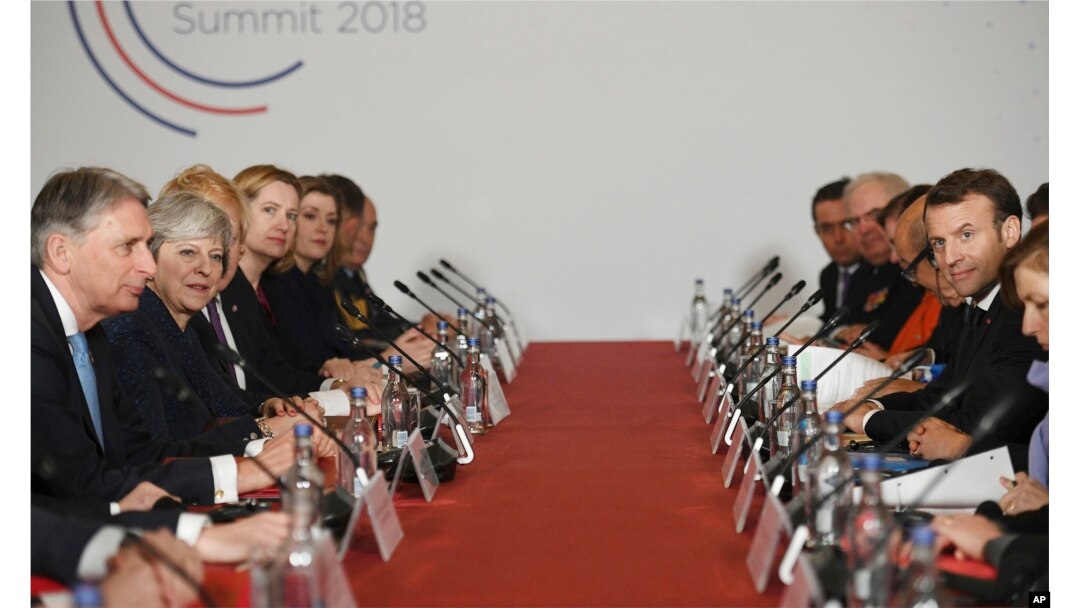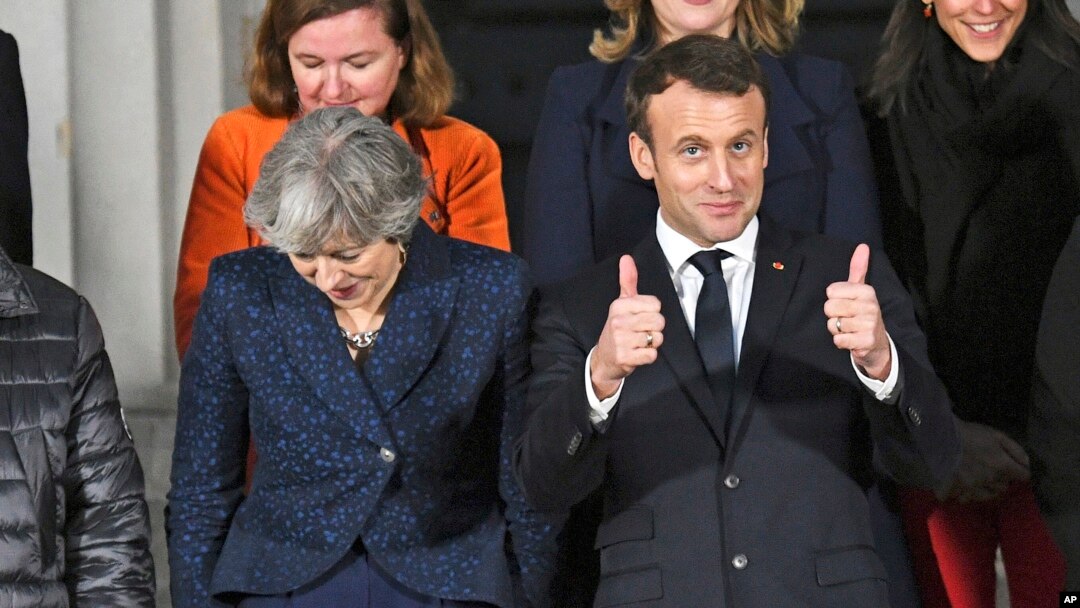Britain and France, Europe's two biggest military powers, have agreed to closer ties in defense and security following a summit between the two leaders.
The French national anthem welcomed President Emmanuel Macron to Britain's elite Royal Military Academy at Sandhurst, the location indicative of the importance both countries give to their security relationship.
Top of the agenda was a new deal to manage the migrant crisis at Calais, the northern French port that acts as a gateway to Britain. In what is seen as a victory for President Macron, Prime Minister Theresa May agreed to pay an additional $67 million for enhanced security measures, and to the expedited processing of asylum claims for refugees, especially those under 18 years of age.
"The president and I agree on the importance of the UK-France relationship, not just to our security but to European security," Prime Minister May told reporters.
The heads of Britain and France's five intelligence agencies also met for the first time. Both countries offered military commitments to back the warm words.
Britain is offering helicopters to help transport French troops deployed in the Sahel to fight Islamist terror networks — a welcome addition for France's military, which is undergoing spending cuts, said analyst Sophia Besch of analyst group the Center for European Reform.

Britain's Prime Minister Theresa May (2nd-L) and French President Emmanuel Macron (2nd-R) sit with their delegations during UK-France summit talks at the Royal Military Academy Sandhurst, in Camberley, England, Jan. 18, 2018.
"France is very keen to get other European partners on board to support it in its operations in Africa, in the Sahel," she said. "You can hear sometimes French officials say that, yes there is an EU army, and it's French.' So, there is this sense that the other Europeans need to step up, that all this responsibility can't just be on France. And if the UK is willing to do it, then that's great."
In turn, France is offering more troops to reinforce a British contingent deployed in Estonia under NATO's mission to deter Russian aggression.
"NATO still remains the main structure for operations in Europe, the bedrock of European security," said Besch. "And Germans and the French say that too. But on the other hand, the French in particular are pursuing what they call strategic autonomy so the European ability to act without the United States. And that's something that the UK has been fairly critical of in the past."
The positive mood of Thursdays' summit masks underlying tensions over Britain's departure from the European Union. London wants a bespoke exit deal that allows access to the EU's Single Market. President Macron made clear France's red lines in the negotiation.
"I have one demand and that is that the single market is preserved. It is one of the benefits of the European Union and one of the bases of the European Union. So now the choice is on the British side, it's not on my side," President Macron told reporters.
Determined not to allow Brexit tensions to chill the mood, President Macron offered Prime Minister May a cultural olive branch: the loan of the world-famous Bayeux Tapestry.
However, some observers detected a hint of irony, as the tapestry depicts the conquering of Britain by the Normans - who arrived from France in 1066.


